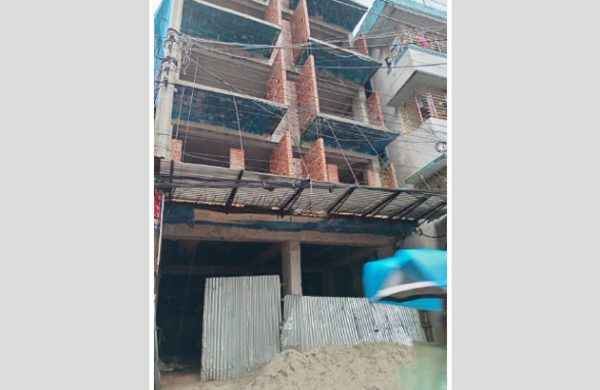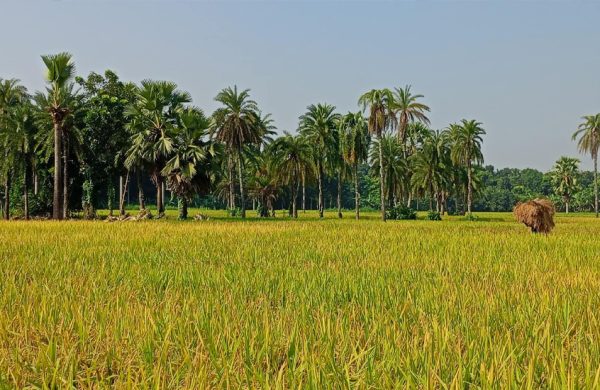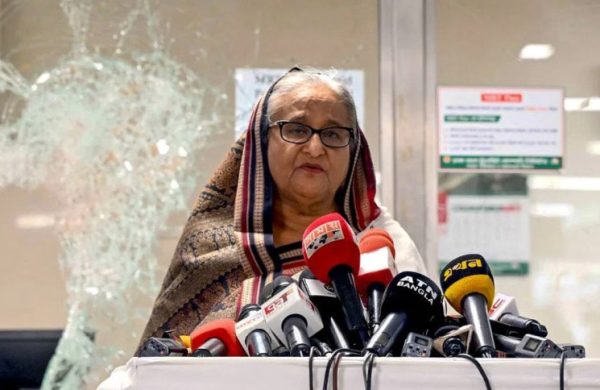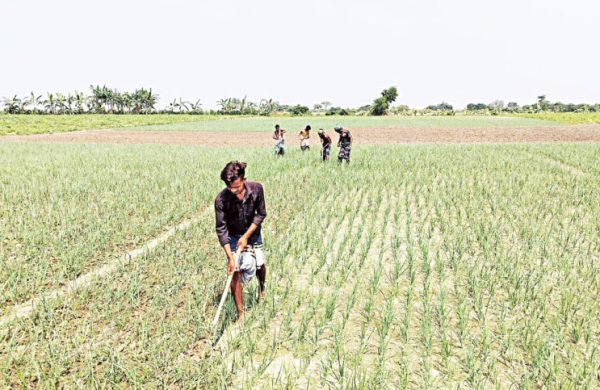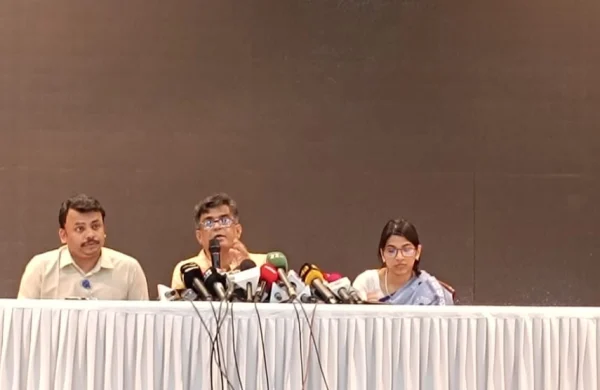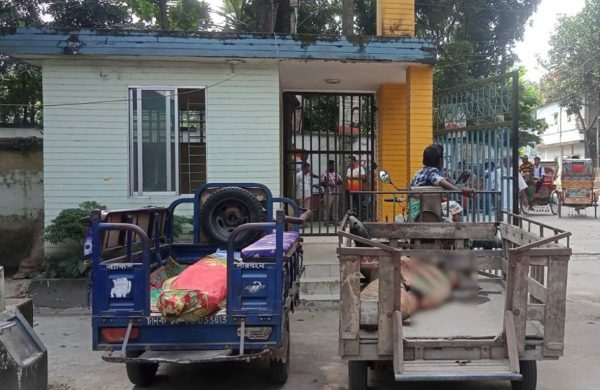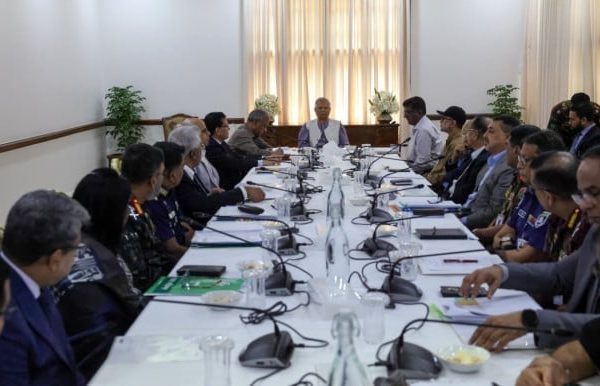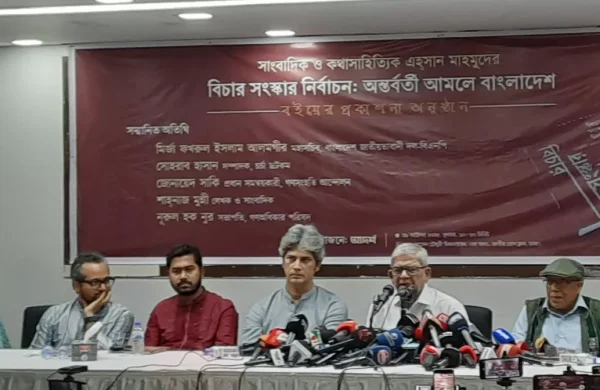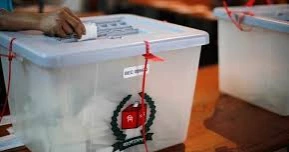Power sector faces burden of arrears
- Update Time : Wednesday, October 29, 2025
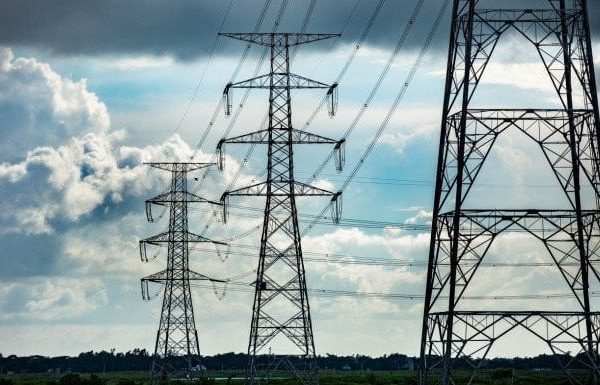
Staff Correspondent:
The ousted Awami League government left behind $3.2 billion, or roughly BDT 390 billion, in foreign loans in the power and energy sector. Since the Interim Government took office, it has repaid BDT 290 billion of that debt by April 2025. Additional portions of the sector’s foreign liabilities have also been cleared since then.
Alongside settling foreign loans, the Interim Government has continued the Awami League administration’s initiative of issuing special bonds to pay off outstanding bills of local power plants. Of the special bonds worth BDT 265 billion for fertilizer and electricity subsidies, most of the funds have gone toward clearing arrears in the power sector. Despite these payments, however, the backlog owed to local power producers continues to rise. Private power companies are currently owed at least BDT 200 billion by the Bangladesh Power Development Board (BPDB).
Owners of private power plants said they have not received payment for their electricity bills regularly since March 2025, resulting in a large accumulation of dues. Among the private power producers, those operating furnace oil–based plants are owed around BDT 60–70 billion, while the rest of the arrears belong to gas- and coal-based power plants. The delay in payments has made it difficult for operators to repay loans, maintain plants, and cover fuel expenses, according to industry sources.
Both state-run and private companies supply electricity to the BPDB under the national power distribution system. But as payments have stalled again since March, the agency now owes private independent power producers (IPPs) around BDT 200 billion. As a result, the IPPs are struggling to repay debts, import fuel, and pay local gas companies.
Industry data show that IPPs sell electricity worth more than BDT 30 billion a month to BPDB. Since the payment delays began in March, their total outstanding amount has risen to about BDT 200 billion. Furnace oil–based power plants alone are owed around BDT 60–70 billion, while coal-, gas-, and other fuel-based plants are also awaiting payment.
Speaking on condition of anonymity, a BPDB official told journalists, “Electricity bills are being paid, but not in proportion to the outstanding amount. The payments depend on the finance ministry. Without timely release of subsidy funds from there, it’s impossible to settle all the dues.”
Attempts to reach Bangladesh Power Development Board (BPDB) Chairman Engineer Rezaul Karim for comment on domestic electricity arrears were unsuccessful.
To address unpaid electricity bills, subsidies for the sector were increased to BDT 620 billion in FY 2024–25. Of this, BDT 220 billion in the revised budget was specifically allocated to pay off private power producers’ outstanding bills. Gradually scaling back subsidies, the Interim Government allocated BDT 370 billion for electricity subsidies in FY 2025–26.
During the ousted Awami League government’s tenure, a large backlog of unpaid bills had accumulated from purchases of electricity from private power plants, eventually surpassing BDT 500 billion. To clear the arrears, the AL government issued special bonds. After taking office, the Interim Government accelerated repayment of these outstanding bills, including the substantial dues owed to India’s Adani Power. By the end of June 2025, BPDB cleared $437 million in arrears to Adani Power, resolving a long-standing crisis dating back to the previous government’s period.
According to the Bangladesh Bank, special bonds have so far settled BDT 256.96 billion in electricity and fertilizer arrears. Last November alone, the Interim Government issued BDT 55.63 billion in special bonds.
Currently, national electricity demand stands at nearly 15,500 megawatts. This demand is largely met by coal- and fuel oil–based plants. Hourly generation data show that at 9 pm on October 28, demand was 15,320 megawatts, with 3,041 megawatts supplied by fuel oil–based plants and 3,844 megawatts from coal-based plants.
Independent power producers (IPPs) supply electricity from fuel oil-, gas-, and coal-based plants. Despite the regular supply, BPDB is unable to pay the power producers’ bills as expected, creating financial pressure on the plants’ operations. Owners of private power plants report that many are also facing difficulties in fuel procurement and debt repayment.
David Hasanat, president of the Bangladesh Independent Power Producers’ Association (BIPPA), the organization representing the country’s private power plant owners, told Journalists, “Private power companies (domestic) have five to six months of local bills overdue with BPDB. Essentially, this has been the case since last March. Without regular payments from BPDB, the power companies are struggling to repay bank loans. We raised this issue with the BPDB chairman just two weeks ago. He assured us that the payments would be made promptly. But ultimately, this depends on the release of subsidy funds from the Ministry of Finance. These issues have the largest impact on tariffs. Without aligning tariffs with production and sales costs, resolving the bill payment delays is extremely difficult. If the tariff issue isn’t addressed, overcoming this shortfall is impossible.”
As a private supplier to BPDB, United Power currently has more than BDT 30 billion in overdue bills for electricity supplied to the grid. These bills have been outstanding since February and March of 2025. Of this, BDT 25 billion is for furnace oil–based power plants and BDT 5 billion for gas-based plants. The company has reportedly received no payments since March.
A reliable source reported that due to the unpaid gas bills, Bakhrabad Gas Distribution Company Limited (BGDCL) disconnected the gas supply to United Power’s 195-megawatt gas-based plant in Ashuganj. United Power has notified BPDB of the disconnection in writing.
BPDB sources said it is difficult to specify exactly how many months of electricity bills are overdue across private power companies. However, by company, the arrears range from three to seven months.
Conversations with officials from six major private power companies revealed that their combined outstanding bills total nearly BDT 125 billion. Over the past few months, there has been little progress in settling these arrears. Beyond this, other companies have at least BDT 80 billion in additional unpaid bills.
SS Power, a large coal-based plant in Chattogram, is supplying electricity to BPDB at full capacity to meet the country’s demand. The plant provides BPDB with roughly BDT 8.5 billion worth of electricity each month. However, without regular payments from BPDB, the plant is unable to pay its loans or contractor bills.
Regarding the issue, SS Power’s Chief Financial Officer Mohammad Ebadat Hossain Bhuiyan told Journalists, “We have not received payments for electricity sales since June. Currently, BPDB owes us more than BDT 35 billion. Without these payments, we cannot pay EPC contractor bills, import coal, or cover plant maintenance and repair costs. We are regularly negotiating with BPDB over the bills. But there has been no satisfactory progress.”
SS Power operates a 1,320-megawatt ultra-supercritical plant in Banshkhali, Chattogram. BPDB is receiving electricity from this plant at full capacity. The process of repaying loans at the plant, built with private financing, is ongoing.


